Sign up for The Wild
We’ll help you find the best places to hike, bike and run, as well as the perfect silent spots for meditation and yoga.
You may occasionally receive promotional content from the Los Angeles Times.
Kailyn Brown / Los Angeles Times; Jett Lara / For The Times; other photos courtesy of Troy Acevedo, Deedee Deschanel, Alexandro Fernandez, Julian Mercado, Patrick Struys and The Vzul
As the Latin trap anthem “Singamo” rings over the speakers at the Echo in Echo Park, more than 50 people sing along and twerk onstage. Dina Ben-Nissan and Courtney Hollinquest take turns spinning tracks by artists from around the globe while images of flags from countries such as Puerto Rico, Brazil and Mexico rotate on a projection screen behind them. Off on the side of the stage, La Goony Chonga, a Cuban American rapper and singer from Miami, snaps selfies with fans.
This is what it’s like to attend ¡BAILE!, a world music dance party that’s been taking place in L.A. since 2022. Named after the Spanish slang word for dancing, the party focuses heavily on sounds from Latin and South America but also delves into music from other parts of the world, such as soca and Gqom, which has roots in South Africa.
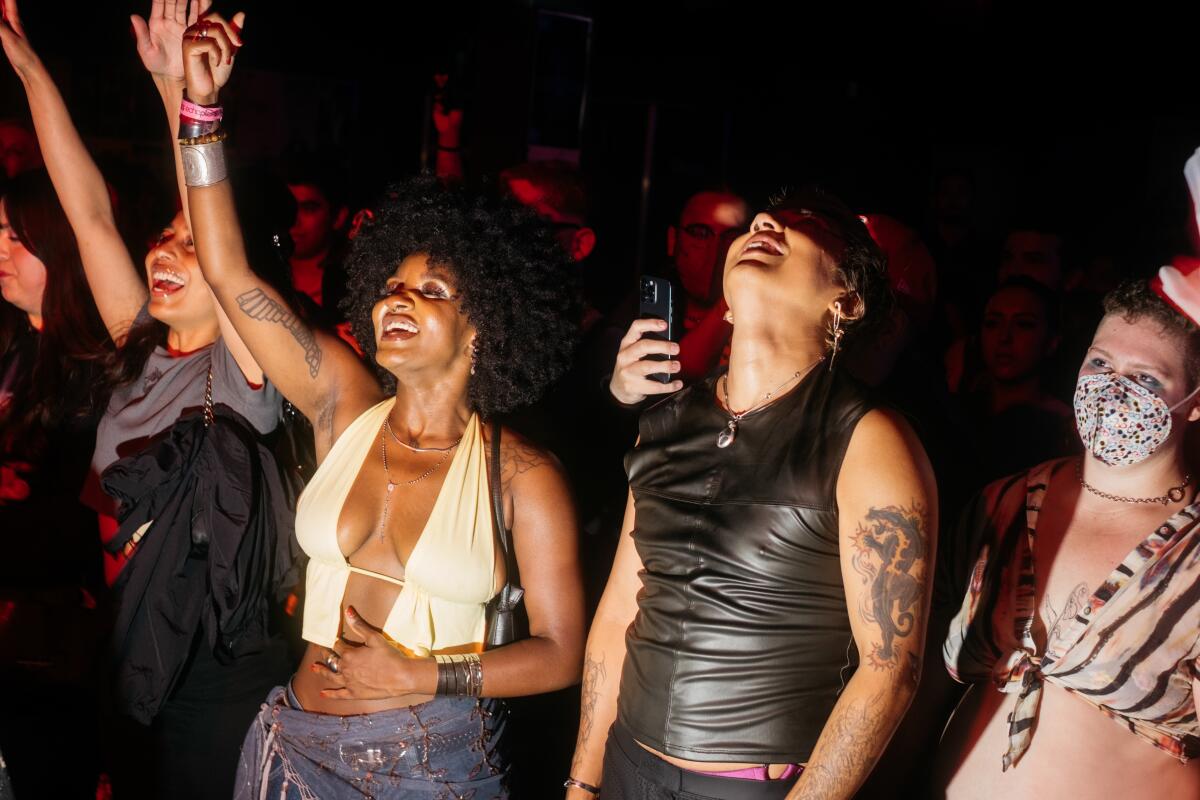
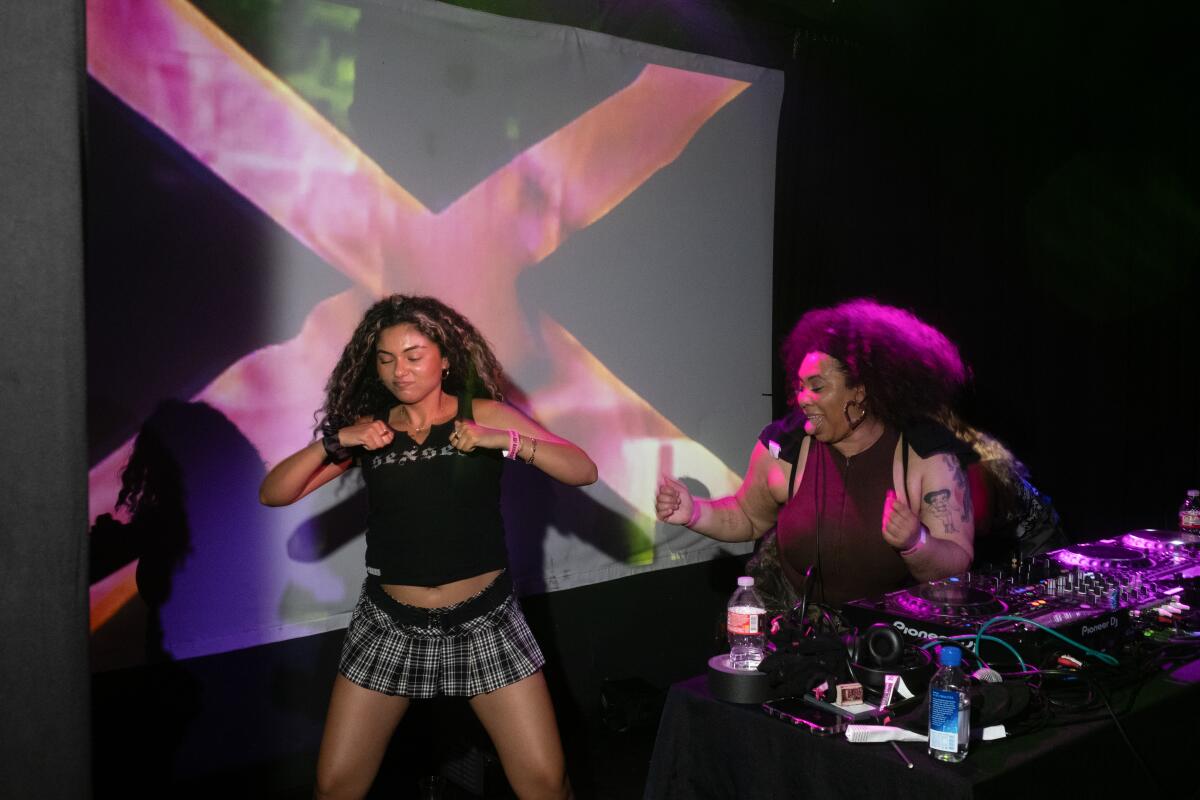
“Being Black and Latina, I’ve never been in a space where I can play all things at once,” says co-founder Hollinquest (a.k.a. DJ CQUESTT), who is of Puerto Rican, Mexican and Black descent. “It’s either Latin music or hip-hop, so the idea for [¡BAILE!] was to create a space where I can play everything that kind of represents me and all of these club sounds that I’ve been hearing throughout my travels.”
The party is one of several in L.A. that transports attendees to other countries — no need for a passport. On any given night, Angelenos can hear sounds spanning from Southeast Asia to Mexico. Adding to the experience are the cultural details — the food, the decor, the attire. For example, you can enjoy sambusa and other traditional Ethiopian bites at Motherland Sounds. At an Afro Caribbean party known as Carnival Tabanca, some attendees wear modern and traditional Carnival costumes.
Such events have been rising in popularity in recent years as once-niche genres like West Africa’s Afrobeats have become more mainstream.
As the fusion genre Afrobeats continues to expand its footprint here in the U.S., a growing number of fans are journeying to its source: West Africa.
“It used to be like if you know, you know,” says Kwabena Anfo, a Ghana-born DJ and producer who goes by Blaq Pages and throws a traveling party called Afrobeats to the World. “But now with social media, you can find the right community that you want to be in and find the music that you want to enjoy.”
Part of what makes music so powerful is its ability to introduce people to cultures different from their own, and to give people who are far away from their birthplace the feeling of a slice of home. Here are six L.A.-based rhythmic dance parties that do just that.
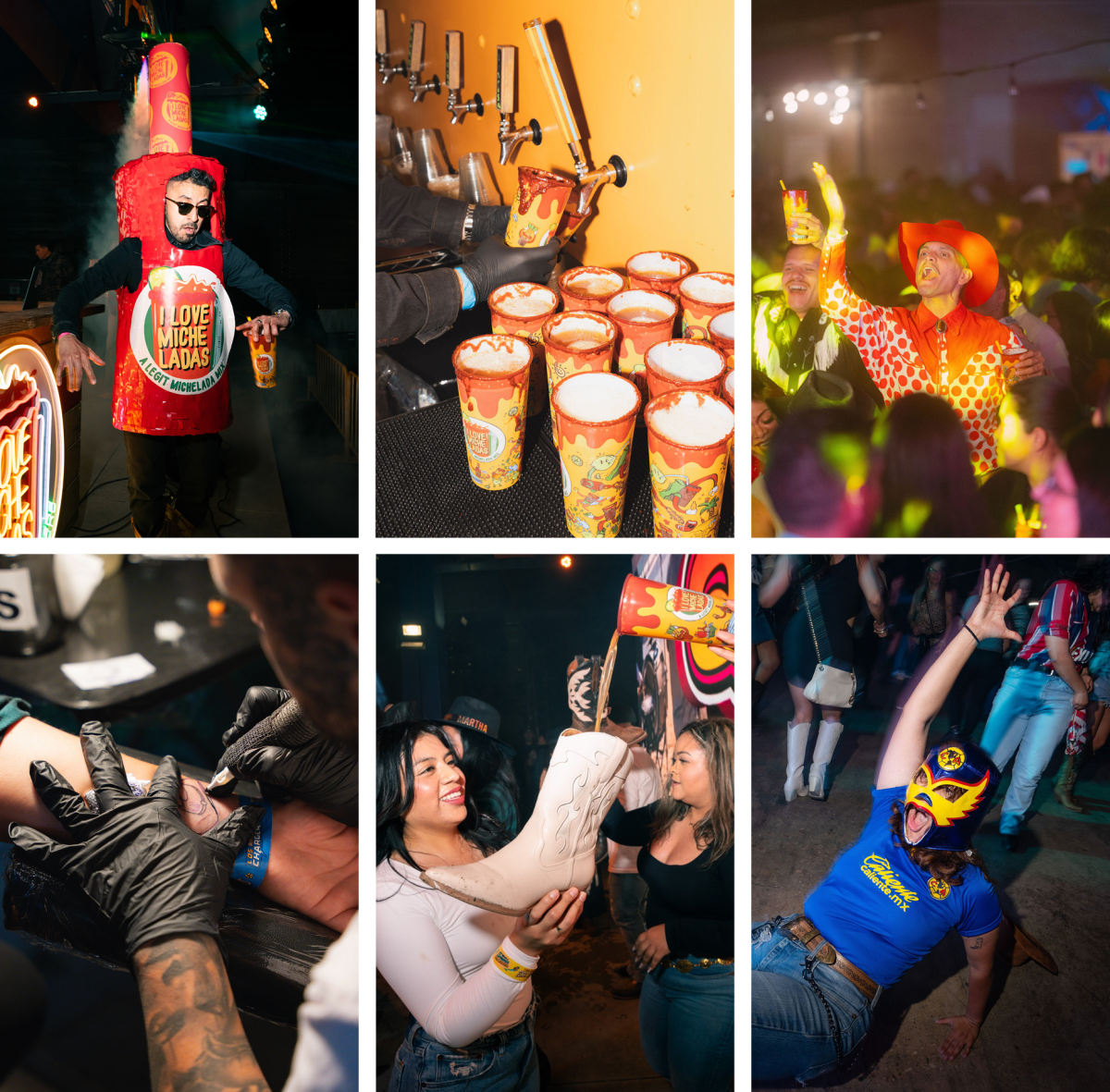
When: First Friday of every month
Where: The Beehive in South L.A.
Inspired by Oaxaca’s annual Guelaguetza festival that celebrates food, music, art and dance from the region, Fernando Lopez, co-owner of I Love Micheladas, started throwing cumbia parties at breweries around L.A. After years of not doing it, Lopez and his sisters decided to bring the parties back in 2023, which they named First Fridays. The party features two stages, one with a live band and another with DJs who play everything from West Coast hip-hop to reggaeton. Held at the Beehive in South L.A., the event also features a mechanical bull ride, tattoo station, food trucks and bars where you can buy I Love Micheladas’ signature drinks. They even have a mascot dressed like a michelada that bounces around the venue to keep the crowd hype.
Attendees show up ready to dance, wearing their flyest cowboy hats and boots, which they wave in the air when La Banda Mexicana’s “La Bota” comes on — a tradition that DJ Que Madre started at the party. The intergenerational event, which is 21 and up, attracts a majority Mexican crowd, but people from other backgrounds also attend regularly.
It’s clear there’s a desire for Caribbean culture in L.A., as more and more Caribbean Latines make their way to the West Coast.
Lopez, who’s also the co-owner of the Guelaguetza in Koreatown that his parents opened in 1994, says attending First Fridays feels like being in a pueblo or small town in Mexico. “Everybody remembers going to a quinceañera and falling asleep on like three chairs, so it’s like that same vibe,” he says, adding that the party helps people connect with their roots and celebrate who they are.
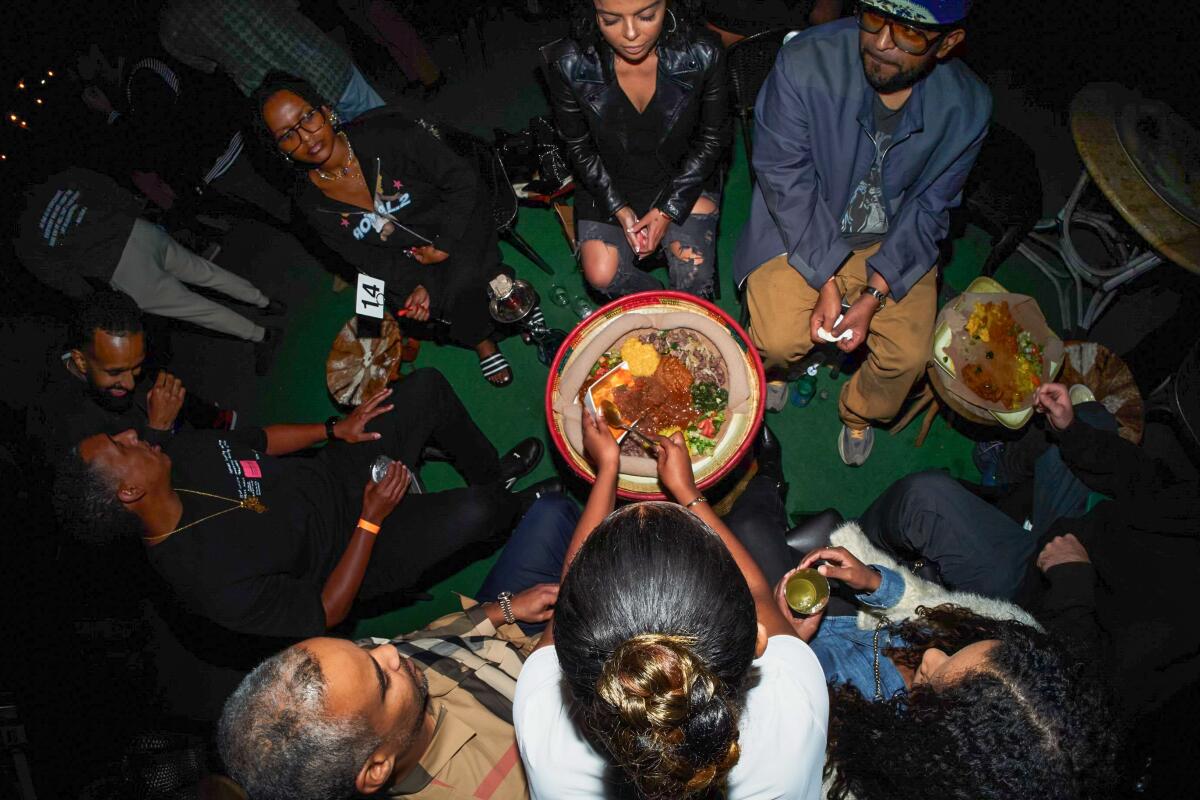
When: Every other Wednesday
Where: Emma Habesha restaurant in Inglewood
After going to African dance parties in L.A. for years, Addis Daniel noticed that the clubs often had a heavy West or South African sound. “I’ve never heard music from East and North Africa in the club,” says Daniel, who is Ethiopian and works as a graphic designer and event producer. “Unless it’s specific to a cultural event that you’re going to, then it’s very rare.”
To fill this gap in the L.A. party scene, Daniel and four friends — Miriam Haregot, Tamé Bezabeh, Yonas Michael and Denkinesh Argaw — launched their own event called Motherland Sounds in June 2023, where they explore sounds from the African continent from their East African point of view.
The biweekly party is held on the back patio of family-owned Ethiopian restaurant Emma Habesha in Inglewood, where there’s a colorful mural of African flags. The hosts serve glasses of tej (an Ethiopian honey wine) and sell platters of popular Ethiopian dishes such as tibs (lean beef sautéed in onions) and doro wot (chicken-and-egg stew), which is served family-style. An eclectic lineup of DJs plays a mix of Afro rock, Sudanese jazz, Highlife, Afrobeats and Ethio-jazz. Attendees also can expect to hear funky hip-hop and R&B remixes. In August, Motherland Sounds celebrated the life and legacy of late rapper Nipsey Hussle, who was of Eritrean descent.
“There’s not a lot of access points for people who don’t belong to the culture — like if you don’t already go to church or speak the language,” says Daniel. “So I feel like [Motherland Sounds] for me was an exercise in pan-Africanism in its own way through this kind of low-hanging fruit of food and music. Folks feel like they can be a part of what we have going on.”
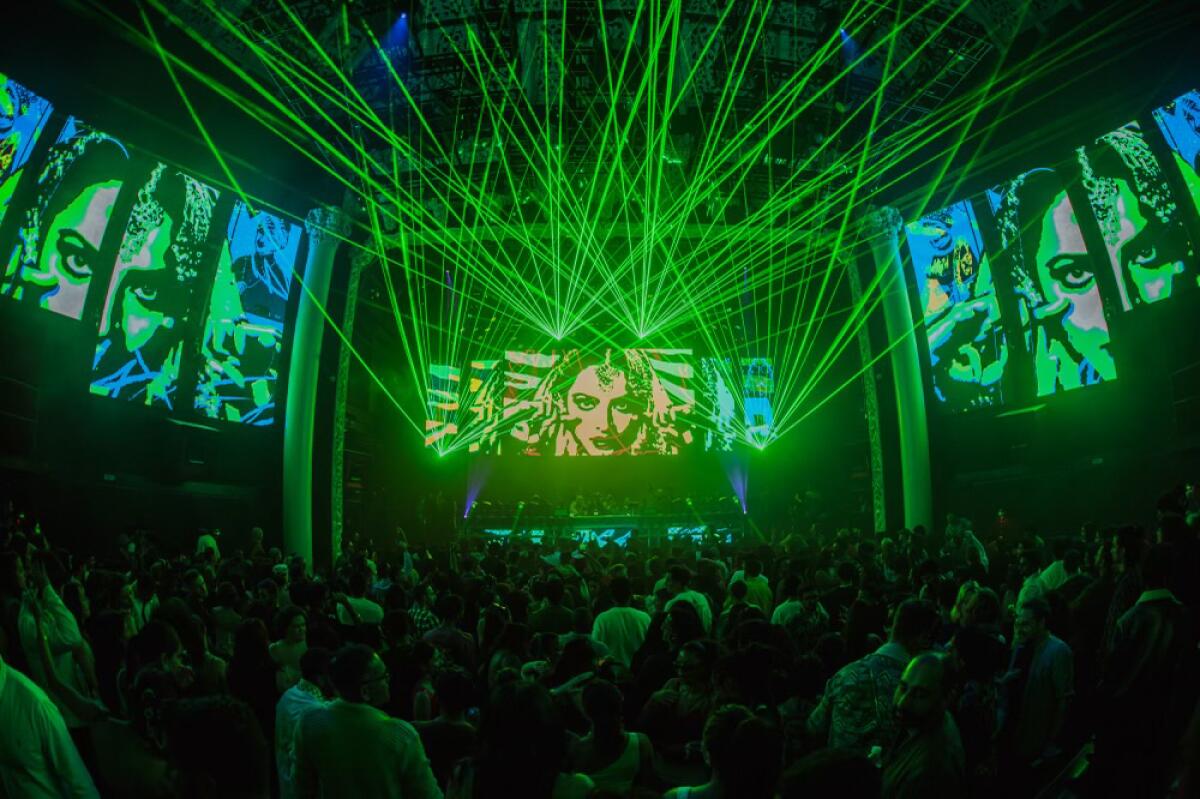
When: Roughly every couple of months
Where: Varies
Since Bianca Maieli started DJing nearly 10 years ago, she’s always sprinkled both sides of her culture, Colombian and Indian, into her DJ sets. But it wasn’t until roughly four years ago that she decided to team up with two friends, Malinder Tooray and Omar Ahmed, who are also DJs, to start a party called No Nazar, which highlights music from various countries but has a strong emphasis on Asia.
“I didn’t really know if there was an audience or market for that outside of people who were familiar with it already, so it’s been really cool to see that, yeah, there definitely is,” says Maieli.
“Nazar” is an Arabic word that refers to the concept of the evil eye, an envious glare believed to cause harm to those it falls on. The name No Nazar perfectly describes what the founders want people to experience when they attend — positive vibes and a cultural exchange of music on the dance floor, Maieli says. The party has since expanded to New York, London, San Francisco, Toronto and Detroit.
Maieli says you never know what to expect at a No Nazar party as the DJs flow in and out of various genres. At one point, you might hear a Brazilian funk song like “Atoladinha” by MC Bola de Fogo and MC Tati Quebra Baraco or an upbeat remix of Pakistani singer Nusrat Fateh Ali Khan’s “Tumhe Dillagi,” then Jamaican artist Sean Paul’s “Temperature.” During a No Nazar event in August, two men did a traditional Indian dance known as bhangra as the DJ played an upbeat remix of Diljit Dosanjh’s “Case” and the crowd cheered them on. Whatever you do, just make sure you have your Shazaam app ready so you can save the songs to your music library.
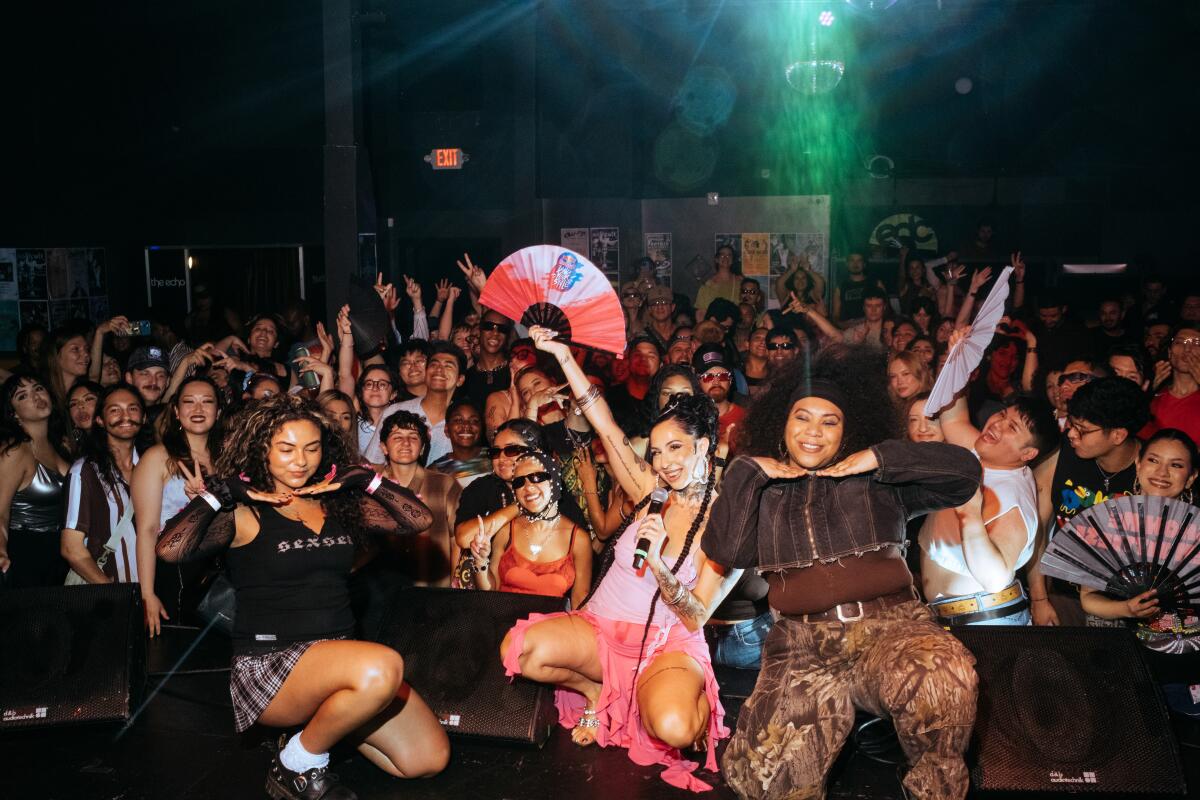
When: Bimonthly
Where: The Echo in Echo Park
When Arlie Toriz first moved to L.A. from Mexico City a couple of years ago, she hated going out. She was used to “the sweatiness [and] the griminess” of her hometown, where events felt like stepping into a house party rather than a bougie club, she says. That all changed when she went to her first ¡BAILE! by happenstance during a night of bar-hopping in Highland Park. Inside, she found people, primarily femmes, dancing shoulder to shoulder in the humid room to artists like Rosalía and El Alfa.
“It felt good to hear music that was current to me from Mexico City,” she says, adding that she also felt safe as a queer femme — a priority for the founders. “It let me know that they were in the know.”
She adds, “It feels so much like home.”
Michael Donte started “Black House Radio,” a YouTube show and event series, to uplift Black house DJs in Los Angeles and to pay homage to the genre.
After meeting at a party where they were both DJing during the summer of 2022, Hollinquest and Ben-Nissan connected over their mutual love for global sounds. “We were [both] like, ‘Why aren’t we playing this sound more?’” recalls Ben-Nissan, who is of Middle Eastern and Mexican descent. From that moment, ¡BAILE!, which Hollinquest had named a one-off party she did years before, was reborn. With the help of a TikTok post, they packed their first party, which they held at the Friend bar in Silver Lake. They later moved it to the Blind Barber in Highland Park before making the Echo their home base. Artists like Becky G and La Goony Chonga have made appearances, and sound selectors including DJ Karaba, Bianca Oblivion, DJ Habibeats and Dos Flakos have dropped sets at ¡BAILE!.
“We’re so genre-bending,” says Ben-Nissan, who goes by DINA. “We’ll just go anywhere from an L.A. hip-hop song into a reggaeton song into a soca song into baile funk into an edit and then back down to Sexyy Red, but it all still connects because all music is connected.”
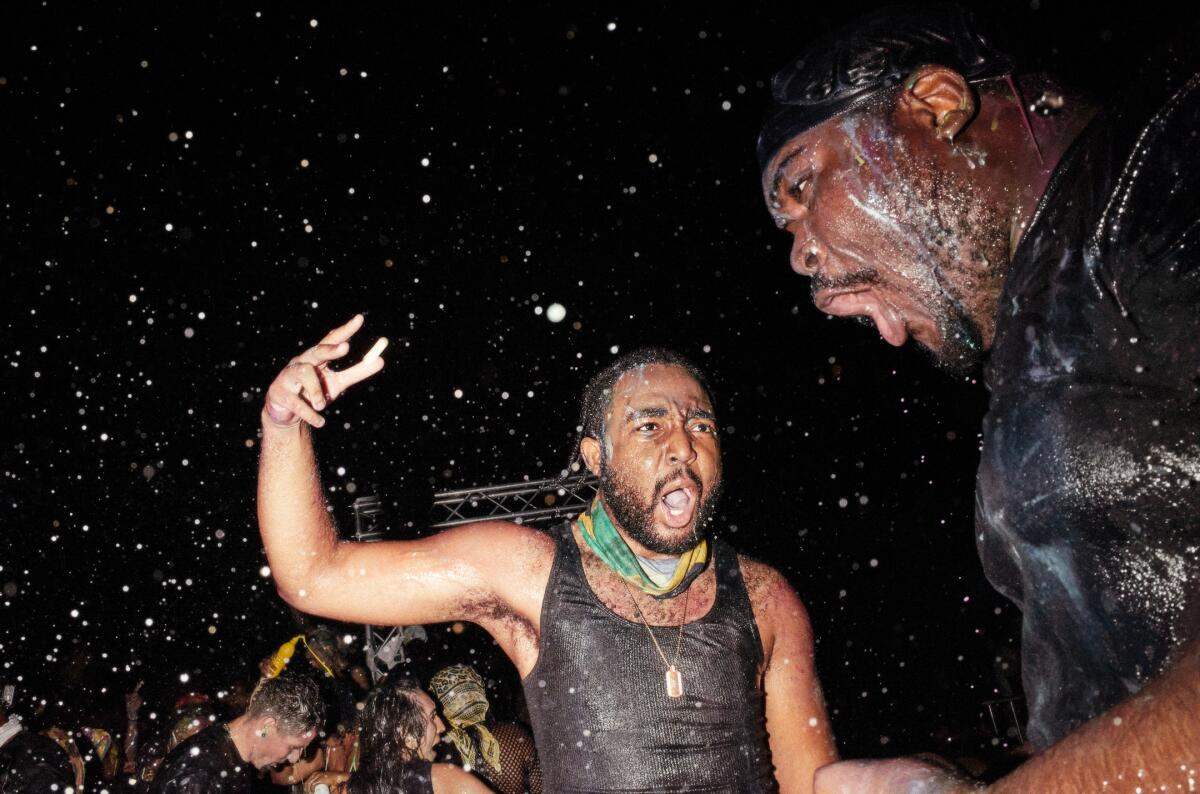
When: Once or twice a year
Where: Varies
When Adam Cooper came across an old junkyard filled with RVs and rock crawlers in South L.A., he immediately saw its potential. Cooper, who goes by Foreigner, asked the owner if he could use the space to host a party called Junkyard Jouvert, inspired by J’ouvert, a high-energy street party that originated in Trinidad & Tobago where participants throw paint and powder at one another. J’ouvert is also the ritualistic opening of Carnival.
“I just felt it in my heart that L.A. could use the context of soca to enjoy it because soca is a weird genre that you have to really experience the environment to appreciate it,” says Cooper, who was born in Trinidad & Tobago but raised between Venezuela and New York. “And it’s something about throwing paint at one another that makes anything sound good.”
Roughly 250 people attended the first Junkyard Jouvert in March 2018, which went from 2 a.m. to sunrise. Now, it’s one of the most anticipated parties in L.A. for people who appreciate Afro Caribbean music, Carnival and judgment-free dancing. Cooper hosts Junkyard Jouvert once or twice a year in order to “keep it special,” he says, but he also throws other events like Roadblock and Carnival Tabanca throughout the year. The next Junkyard Jouvert is set for Sept. 7.
While many Caribbean people attend Junkyard Jouvert, Cooper says it’s also attracted others who are “genuinely curious” about the tradition. He says, “Being able to do this work allows me to find the people who share the same values, but then also I get to re-create an environment that a lot of people think only exists abroad.”
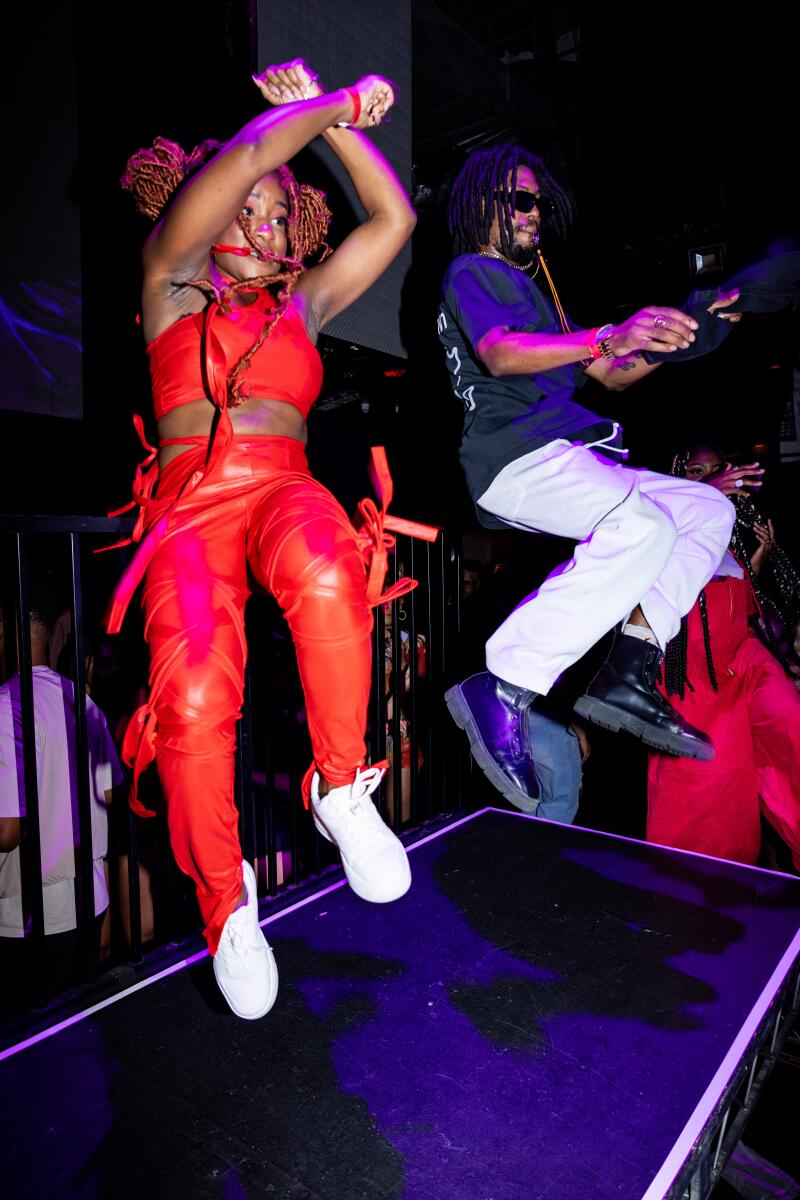
Energetic dancers at Afrobeats of the World. (The Vzul)
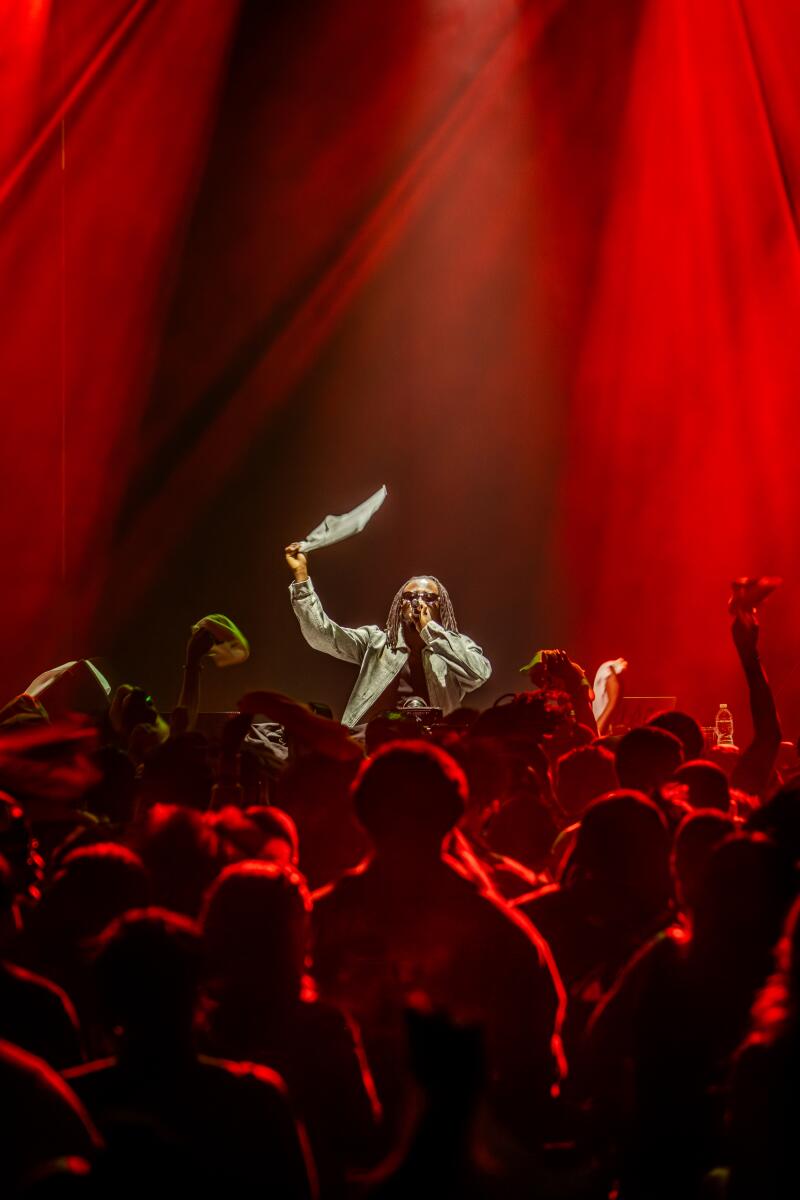
Expect to hear a wide variety of Afrobeats and other genres coming out of Africa at Afrobeats of the World. (Oaday Awadalla)
When: Every three to four months
Where: Varies
After throwing events like Afro Gogo and Afro Bashment — two of a very small number of Afrobeats parties in L.A. at the time — Kwabena Anfo, who’s originally from Accra, Ghana, asked himself a pivotal question: “How can I spread African music worldwide?” His answer was Afrobeats to the World, a lively musical experience that he launched in 2021 for people who appreciate Afrobeats and other genres coming out of Africa.
Attending Afrobeats to the World feels like stepping into an energetic concert, where DJs and artists — such as DJ-producer Juls from London and Nigerian singer Ayra Starr — are the main attraction. There’s usually a set of lively dancers onstage to keep the energy up. Expect to hear everything from deep cuts by Fela Kuti to more mainstream acts like Wizkid, Tems and Burna Boy, as well as Amapiano records from artists like Tyler ICU and Kabza De Small.
As the fusion genre Afrobeats continues to expand its footprint here in the U.S., a growing number of fans are journeying to its source: West Africa.
Anfo took Afrobeats to the World on tour for the first time last year and visited 16 cities. This summer, he announced his second tour, which includes stops in Mexico City, Miami and Columbus, Ohio. As a self-proclaimed “African music ambassador,” he’s been doing exactly what he set out to do.
“My goal was not to only attract Africans,” he says. “[I wanted] to make it more inclusive for other people to be able to experience the African culture.” Anfo will throw his first festival, dubbed Enjoyment Land, celebrating African music, food and art, on Oct. 6 in downtown L.A.
Sign up for The Wild
We’ll help you find the best places to hike, bike and run, as well as the perfect silent spots for meditation and yoga.
You may occasionally receive promotional content from the Los Angeles Times.